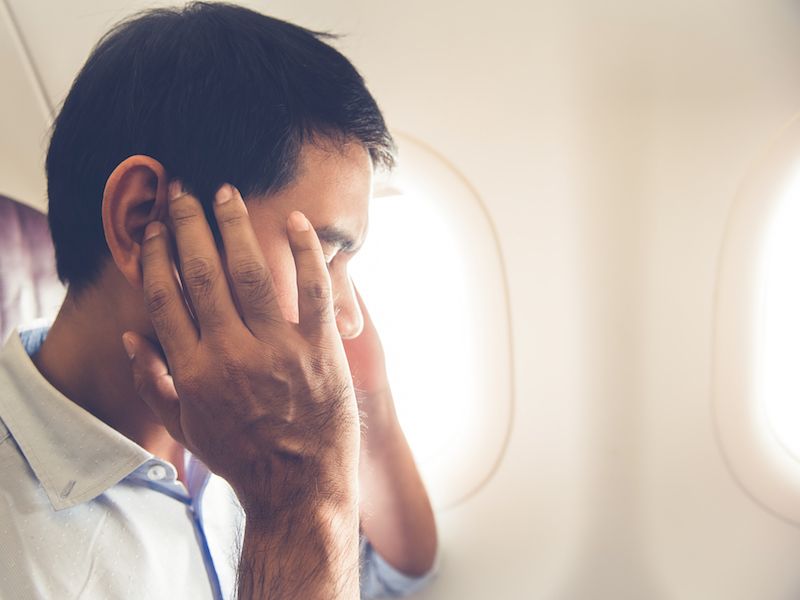
You have good days, and you have bad days, that’s normal for people with tinnitus but why? More than 45 million Americans endure ringing in their ears from a condition called tinnitus, according to the American Tinnitus Association, and 90 percent of them also suffer from some amount of hearing loss.
None of that explains why the ringing is intrusive some days and virtually non-existent on others. It’s not completely clear why this happens, but some common triggers may clarify it.
What Is Tinnitus?
Tinnitus describes a condition where the patient hears phantom noises such as:
- Buzzing
- Clicking
- Ringing
- Roaring
- Hissing
You hear it, the person beside you doesn’t, which is part of what makes tinnitus so disturbing. The noise can vary in pitch and volume, too. One day it could be a roar and the next day be gone completely.
What Causes Tinnitus?
Changes in a person’s hearing are the most prevalent cause. These changes may be due to:
- Aging
- Ear bone changes
- Earwax build up
- Noise trauma
There are other possible causes, also, including:
- Acoustic neuroma
- Tumor in the head or neck
- Atherosclerosis
- TMJ issues
- A problem with the carotid artery or jugular vein
- Meniere’s disease
- High blood pressure
- Head trauma
For a certain percentage of people, there isn’t any apparent reason for them to have tinnitus.
See your doctor to have your ears tested if you suddenly observe the symptoms of tinnitus. The issue might be something treatable or even a symptom of a life-threatening condition such as high blood pressure or heart disease. It may also be a side effect of a new medication.
For some reason the ringing gets worse on some days.
The reason why tinnitus gets worse on some days is a bit of a medical mystery. The reason could be different for each person, also. However, there could be some common triggers.
Loud Events
Your tinnitus can be aggravated by loud events like concerts, club music, and fireworks. If you expect to be subjected to loud noise, your best choice is to use ear protection. They make earplugs, for instance, that will permit you to enjoy music at a concert but reduce the effect it has on your hearing.
Another thing you can do is to put some distance between you and the source of the noise. For instance, don’t stand right beside the speakers at a live performance or up front at a fireworks display. With this and hearing protection, the impact to your ears will be reduced.
Loud Noises at Home
Stuff at home can be equally as harmful as a loud concert. Tinnitus can be triggered by a lawn mower for example. Think about other things you do at home that might be a problem:
- Wearing headphones – The function of headphones is to boost the volume of your audio which could be aggravating your tinnitus so it might be time to lose those earbuds.
- Laundry – If you fold clothing while the washer is running, for instance.
- Woodworking – The tools you use can cause a hearing problem
If there are things you can’t or don’t want to avoid such as woodworking, wear hearing protection.
Workplace Noise
Loud noises on the job have the same impact as a concert or the lawnmower. It’s particularly important to use hearing protection if you work in construction or are around machinery. Your employer will probably provide ear protection if you inform them of your concerns. Let your ears rest during your off time.
Changes in Air Pressure
When most people fly they experience ear popping. An increase in tinnitus can happen because of the noise of the plane engine and the change in pressure. If you are traveling, take some gum with you to help neutralize the air pressure and think about ear protection.
You can experience changes in pressure without leaving your home, too. If you have sinus troubles, for instance, think about taking medication to help relieve them.
Medication
Speaking of medication, that might also be the issue. Certain drugs affect the ears and are known as ototoxic. Included on this list are these common medications:
- Antibiotics
- Over-the-counter pain relievers
- Diuretics
If you’re experiencing an intensifying of your tinnitus after you start taking a new prescription, consult your doctor. Switching to something else might be feasible.
Tinnitus is an irritation for some people, but for others, it can be disabling. The first step is to figure out what’s causing it and then look at ways to keep it under control from day to day.